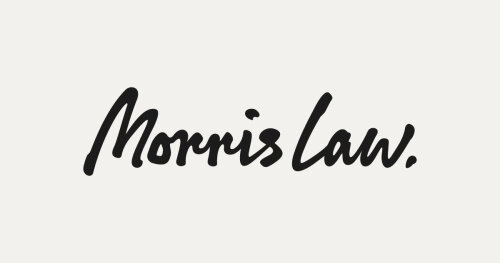Best Art & Cultural Property Law Lawyers in Gothenburg
Share your needs with us, get contacted by law firms.
Free. Takes 2 min.
List of the best lawyers in Gothenburg, Sweden
About Art & Cultural Property Law in Gothenburg, Sweden
Art & Cultural Property Law in Gothenburg, Sweden, is a specialized area of legal practice that focuses on the protection, management, and transfer of cultural property and artistic creations. This field covers a broad range of issues including copyright, intellectual property rights, provenance disputes, repatriation of cultural objects, and compliance with both national and international regulations. Gothenburg, known for its rich cultural heritage and vibrant art scene, demands vigilant legal frameworks to safeguard its artistic and cultural assets. Swedish law emphasizes the protection and preservation of cultural property, and attorneys practicing here must navigate both national laws and international treaties.
Why You May Need a Lawyer
There are numerous situations in which individuals, artists, collectors, museums, and galleries in Gothenburg may require legal assistance in Art & Cultural Property Law:
- Provenance Disputes: Issues may arise over the history or ownership origins of art pieces.
- Copyright Infringement: Artists or galleries facing unauthorized reproduction or use of art can require legal intervention to protect their intellectual property rights.
- Art Transactions: Buying, selling, or donating art often involves complex legal agreements that require expert advice.
- Repatriation Requests: Legal representation might be necessary for the return of cultural objects to their place of origin.
- Forgery and Fraud: Legal action may be necessary in cases involving counterfeit art.
- Licensing Agreements: Legal expertise is needed to structure and negotiate licenses for art display and reproduction rights.
Local Laws Overview
In Gothenburg, Sweden, key aspects of Art & Cultural Property Law include:
- Swedish Cultural Heritage Act: This act governs the protection and management of Sweden's cultural heritage, including item registration and export restrictions.
- Cultural Environment Law: Provides guidelines for preserving cultural environments and monuments.
- Copyright Act: Offers protection to the creators of art by granting them exclusive rights over the use and distribution of their work.
- EU Regulations: As part of the EU, Sweden complies with EU laws concerning the returning of cultural goods unlawfully removed from the territory of a Member State.
Frequently Asked Questions
1. What constitutes cultural property under Swedish law?
Under Swedish law, cultural property includes items of historical, artistic, scientific, or archaeological significance. This can range from ancient artifacts to modern art pieces.
2. Can cultural property be exported from Gothenburg?
Exporting cultural property from Sweden requires a permit. The Cultural Heritage Act regulates the conditions under which such permits are granted, often based on the item's significance and risk of loss to national heritage.
3. How are copyright disputes resolved?
Copyright disputes can be resolved through mediation, arbitration, or litigation. Legal advice can help determine the best course of action depending on the dispute's specifics.
4. What steps should be taken to prove the provenance of an art piece?
It involves collecting historical records, previous sales, exhibition histories, and any documentation that traces the work's ownership back to its creation.
5. What is the role of international treaties in cultural property law?
International treaties like the 1970 UNESCO Convention and the UNIDROIT Convention guide the proper management and restitution of cultural property across borders.
6. How can artists protect their works from being copied?
Artists can register their work for copyright protection and use licenses that restrict unauthorized reproduction. Legal professionals can assist in drafting these licenses.
7. What is the penalty for forging art in Sweden?
Penalties can include fines, imprisonment, and restitution orders. The severity depends on the fraud's scope and impact on public and private collections.
8. How can museums address repatriation claims?
Museums should conduct due diligence, engage in open dialogues with claimants, and may need legal representation to navigate the legal procedures involved in repatriation.
9. How does the EU impact art and cultural property law in Gothenburg?
The EU's laws facilitate cooperation between member states in protecting cultural property and establishing procedures for returning unlawfully removed objects.
10. Are there specific laws for digital art?
Digital art is primarily protected under copyright laws. However, evolving technologies and platforms necessitate ongoing legal assessment and potential policy developments.
Additional Resources
For more information or legal assistance, consider the following resources:
- The Swedish National Heritage Board: Provides guidelines and policies on cultural heritage protection.
- Swedish Artists’ Association: Offers support and resources for artists regarding their rights and legal issues.
- The National Museum of Sweden: A resource for provenance research and documentation.
- University of Gothenburg, Department of Cultural Sciences: Academic resources and expertise in cultural property issues.
Next Steps
If you are in need of legal assistance in the field of Art & Cultural Property Law in Gothenburg, Sweden, consider the following steps:
- Identify your specific legal needs and issues related to art or cultural property.
- Contact a specialized lawyer or legal firm with experience in Art & Cultural Property Law.
- Prepare all relevant documentation and evidence regarding your case.
- Consult with the lawyer to establish a legal strategy and discuss potential outcomes.
- Stay informed of any legislative changes or developments in the field that might affect your situation.
Lawzana helps you find the best lawyers and law firms in Gothenburg through a curated and pre-screened list of qualified legal professionals. Our platform offers rankings and detailed profiles of attorneys and law firms, allowing you to compare based on practice areas, including Art & Cultural Property Law, experience, and client feedback.
Each profile includes a description of the firm's areas of practice, client reviews, team members and partners, year of establishment, spoken languages, office locations, contact information, social media presence, and any published articles or resources. Most firms on our platform speak English and are experienced in both local and international legal matters.
Get a quote from top-rated law firms in Gothenburg, Sweden — quickly, securely, and without unnecessary hassle.
Disclaimer:
The information provided on this page is for general informational purposes only and does not constitute legal advice. While we strive to ensure the accuracy and relevance of the content, legal information may change over time, and interpretations of the law can vary. You should always consult with a qualified legal professional for advice specific to your situation.
We disclaim all liability for actions taken or not taken based on the content of this page. If you believe any information is incorrect or outdated, please contact us, and we will review and update it where appropriate.










